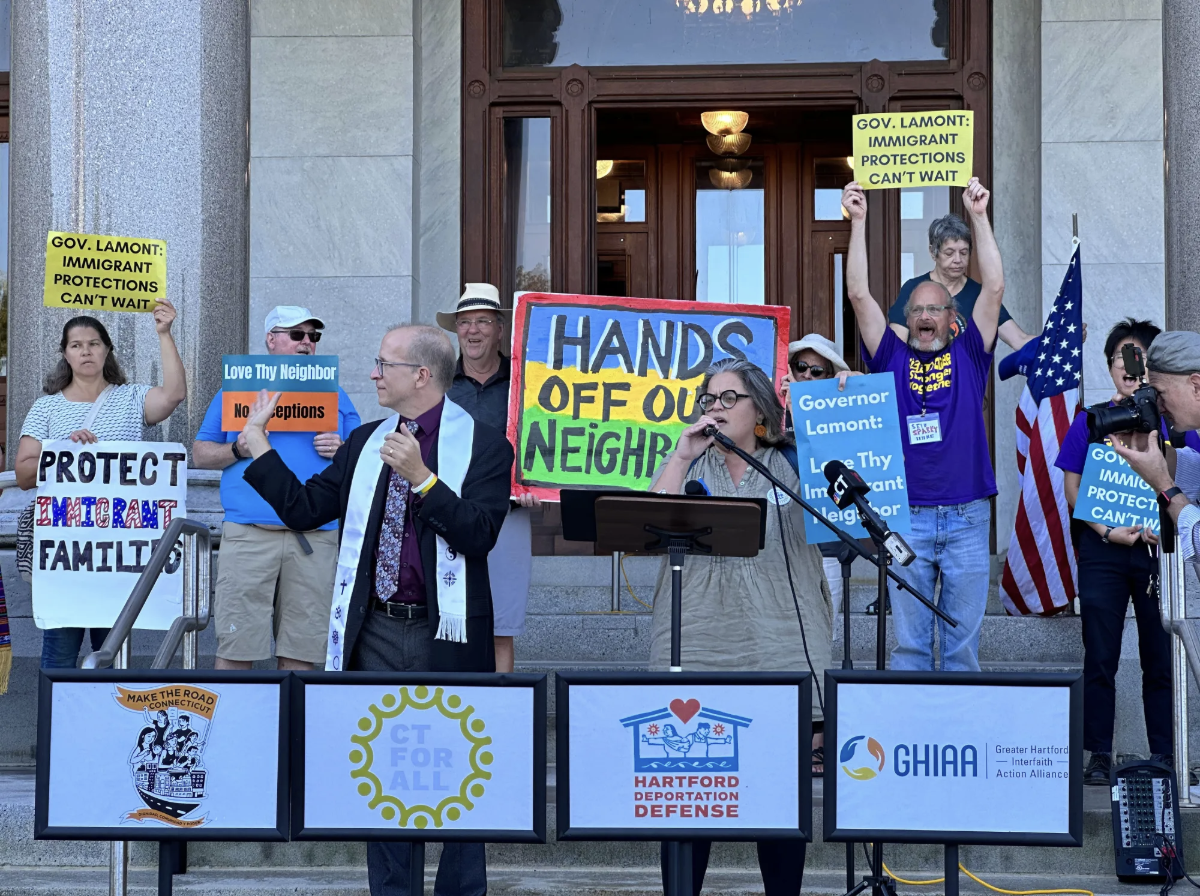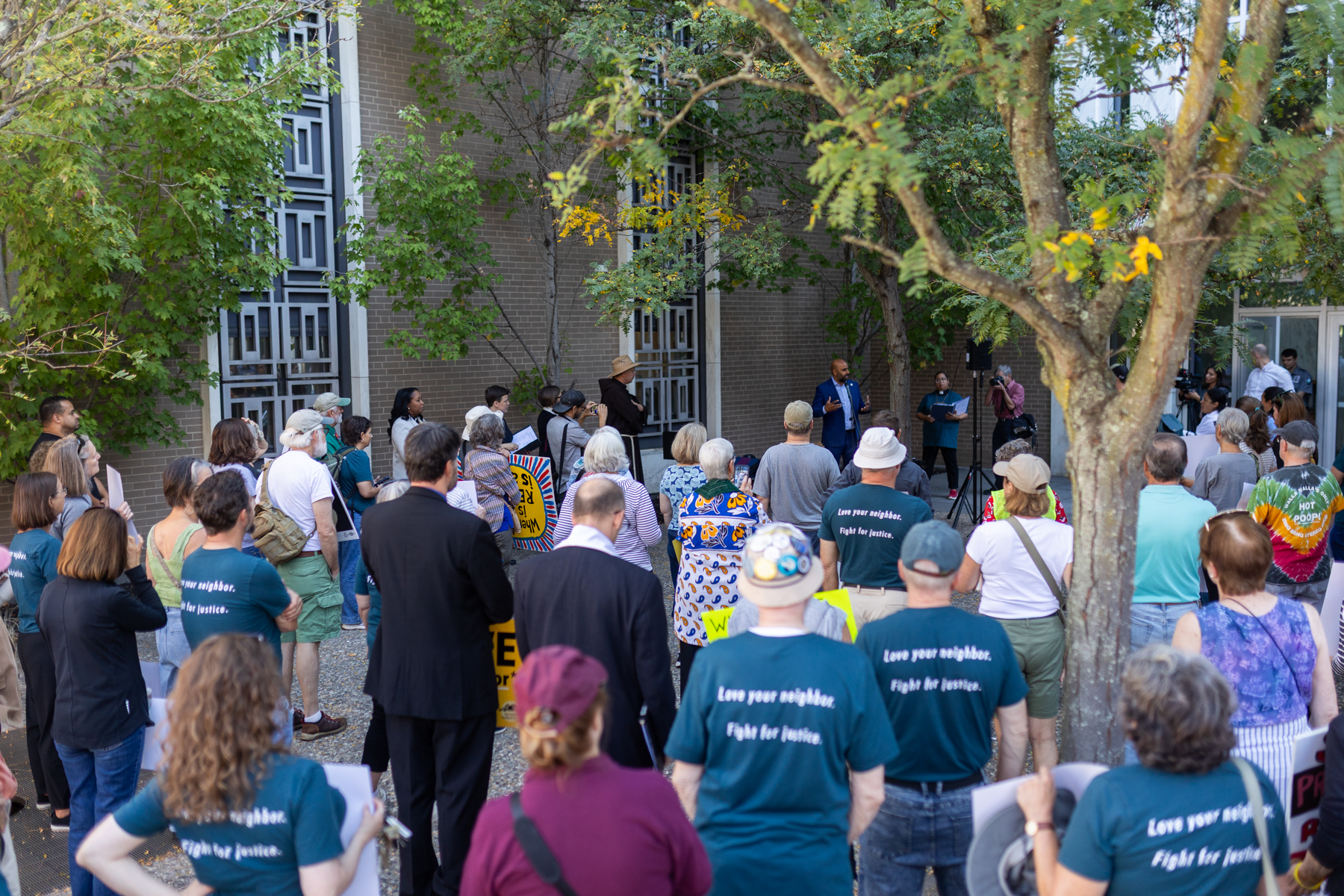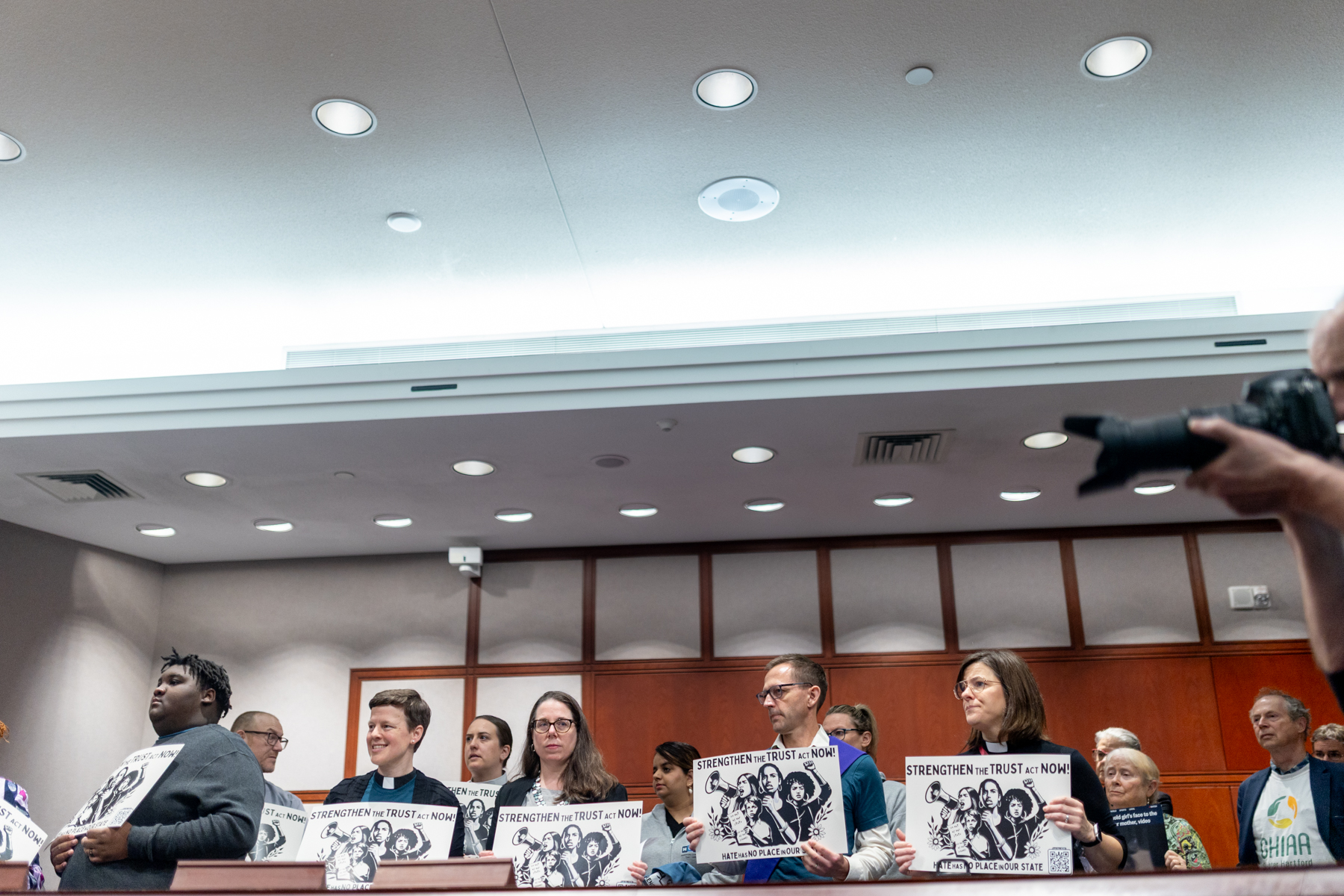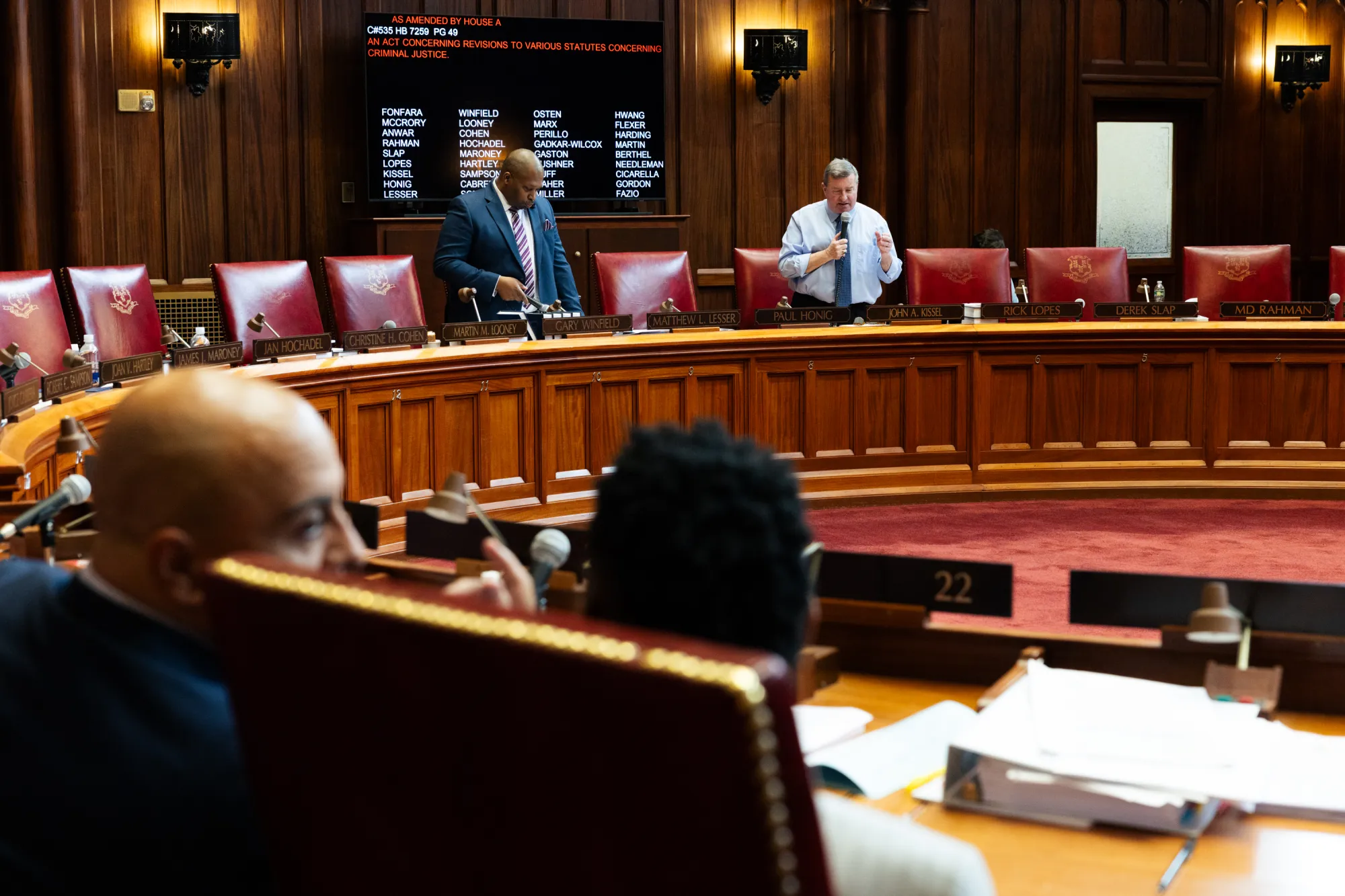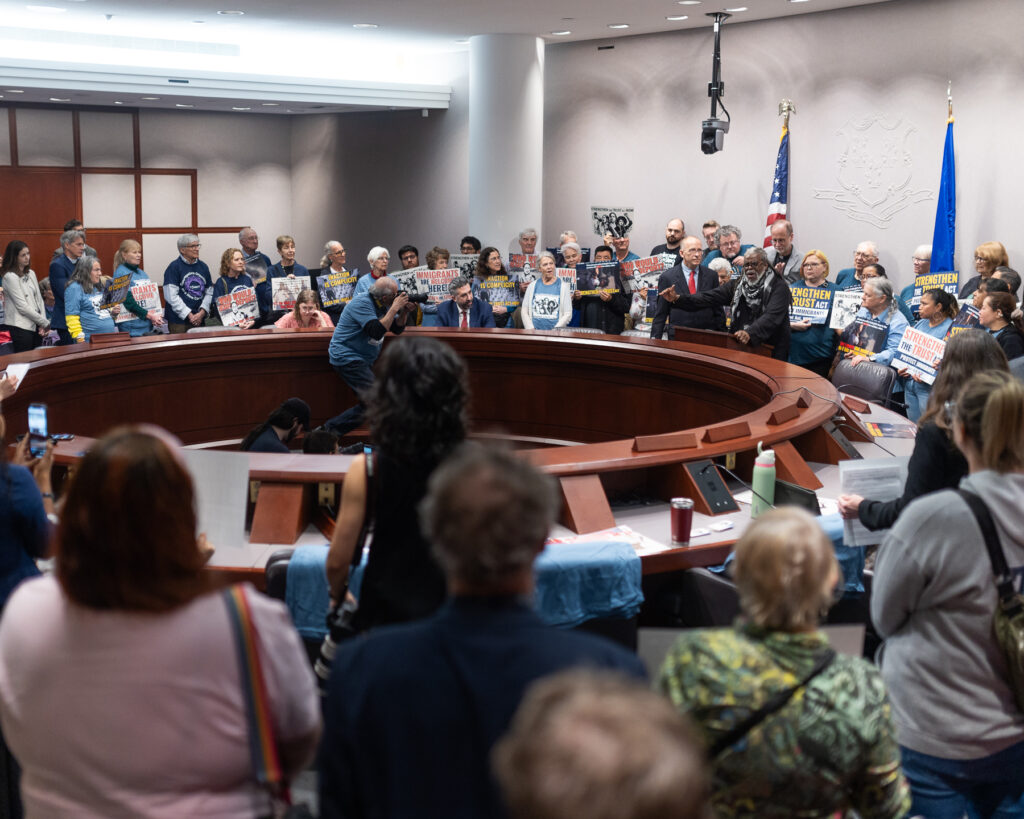
Immigrant rights advocates and faith leaders packed a room at the state Capitol Thursday to pressure lawmakers to pass a bill that would place further limits on how law enforcement and businesses in the state interface with federal immigration authorities.
H.B 7212 would add provisions to a current state law known as the Trust Act, which regulates how local and state police cooperate with U.S. Immigration and Customs Enforcement agents. The Trust Act generally prohibits Connecticut law enforcement from arresting someone solely on the basis of a detainer — a request from ICE that police hold a person for up to 48 hours so federal agents can pick them up — with some exceptions.
The bill would prohibit public agencies in Connecticut from sharing information with ICE such as a person’s home address, workplace, school or “the date, time or location of a person’s hearings, proceedings or appointments with the public agency.” It also prohibits arrest or detention at courthouses based solely on a civil immigration detainer.
In the wake of a recent decision by Avelo Airlines — which has a major hub in Connecticut — to contract with the Department of Homeland Security to carry out deportation flights, the legislature’s Judiciary Committee added language to the bill prohibiting state agencies from contracting with a company unless the leaders and “key personnel” issue a statement saying they won’t cooperate with federal immigration authorities.
As the 2025 legislative session nears its final days, and the Trump administration expands immigration enforcement, Connecticut advocates expressed concern for the bill’s fate.
During the press conference Thursday, Rev. Joshua Pawelek of the Unitarian Universalist Society East in Manchester said he felt that elected officials, particularly Gov. Ned Lamont, “ appear to be wavering in their support for strengthening the Trust Act.”
Rev. Tracy Johnson Russell of St. Monica’s Episcopal Church in Hartford called on lawmakers not to back down because of fears of retribution from the federal government.
“ I understand there is concern that might mean we lose federal dollars that our state desperately needs,” said Johnson Russell. “ I don’t want that to happen any more than anyone else does. But you know what I want even less? To sell out the rights of our immigrant community members in exchange for some hypothetical future grants.”

